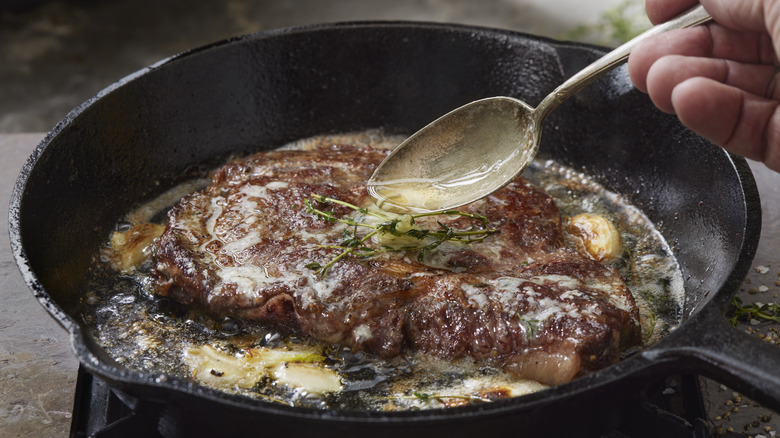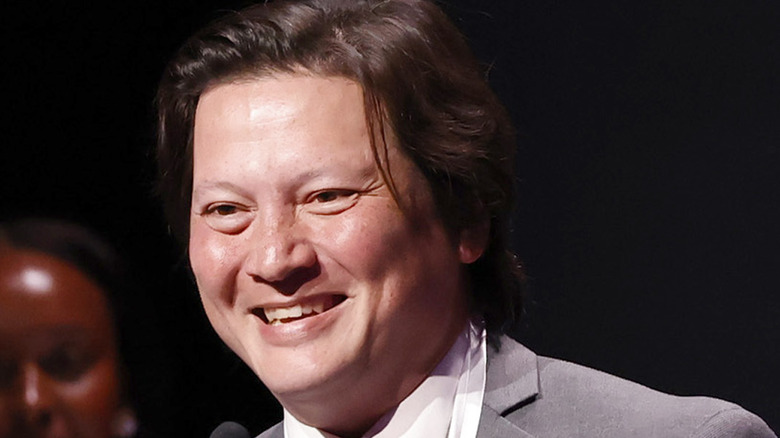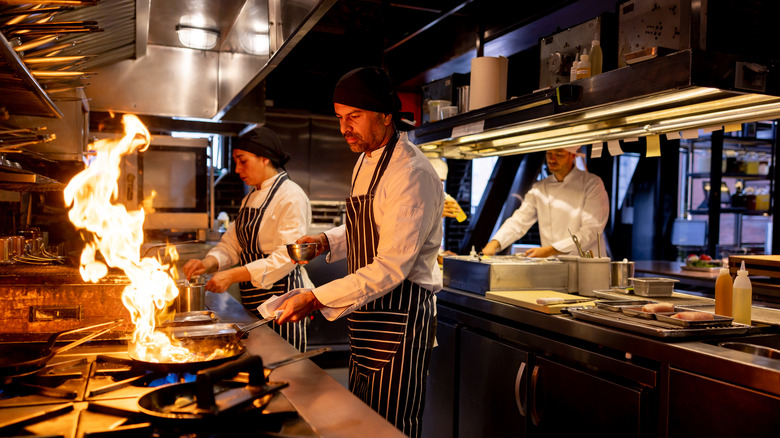You Really Need To Start Fat Flashing Your Steak
Steak is a delicious gift from the beef gods, but it can be tough to know how best to handle cooking it. Oh sure, you might have gotten that perfect medium rare, but how do you serve it when it's done cooking? Common knowledge is that it's always best to rest the steak to give the juices time to redistribute to the center of the meat (this is also the principle behind reverse marinades). But it's also true that if you serve the meat immediately, it's going to have the best possible crust. So how are you supposed to balance these competing demands?
Luckily, it turns out there's a way to achieve both aims, by fat-flashing your steak. The principle here is simple: After resting and just before you serve your meat, you get the leftover fat in the pan smoking hot, then pour it right on top of the steak. If you do it right, it's going to produce a well-rested steak with a perfectly crispy crust — the best of both worlds.
A little more fat produces a better taste and texture
J. Kenji Lopez-Alt is one of the biggest names in food for a reason: The guy is just really, really good not just at cooking, but at explaining how to cook everything from vegan mayo to onion rings. So it's no surprise that he approves of this great fat-flashing tip to get the perfect finish on your steaks. He pours the fat on after the fact and right before serving. He rests his seared steak on a wire rack over a pan to catch the resting juices, which get heated up with the cooking fats, before being poured back over the steak on the rack.
It's important to understand why this works so well. It's based on a similar principle to basting a seared food in fat while it cooks. This is typically with butter or oil, a technique that works wonders for everything from steak to fish. In this case, though, you're not basting and letting the fat cook into the meat. Instead, it's a last-second move with literally smoking liquid fat. This works for two reasons: First, fat equals flavor, and this gives your steak an extra flavor pop. But more importantly, fat is a better heat conductor than hot air, meaning you can blast the surface of your steak without drying it out. You can actually see it work: The meat is going to sizzle and sputter.
Restaurants use something like this trick all the time
If you've ever wondered how steaks at a restaurant can come out tasting so perfect, there's actually a very similar principle at play here. Generally, they're not fat-flashing there because working with tons of hot liquid fat on an industrial scale is trickier and more perilous than doing so at home. Instead, they're using a high-heat oven or a salamander (a broiler-like device designed to reheat food very fast) to give it a final crisp. You're unlikely to have a salamander at home, though, and a regular broiler won't work fast enough, so the fat flashing method is your best bet. Lopez-Alt also makes it clear that this is primarily for indoor cooking; if you're grilling steak, you can instead fire the grill up hard and flash heat the steak for 15 seconds per side right before serving.
Whichever method you use, though, it's important to know the benefits of finishing steak to perfection. Sure, you can just cook a meal — but why not go that extra mile, especially when it only involves adding a simple extra step? Your taste buds will thank you.


